Who would ever have thought that video gaming skills were transferable to a drone program? Interestingly this is an observation drone program manager Kyle Nordfors made regarding how quickly people can learn to fly DJI's Matrice 300. Earlier this year, he and the Search & Rescue team at Weber County Sheriff's Office took the RMUS DJI M300 training. Aviation experience among the students ranged from absolute novices to advanced and experienced airline pilots.
“More or less people learned to fly the M300 at the same rate because it flies just like any other drone. But when it came to the gimbal, it seemed people who are more tech-savvy and have more video game hand-eye coordination, they took to operating the gimbal more than others,” says Kyle.
 Kyle Nordfors, Weber County Search and Rescue
Kyle Nordfors, Weber County Search and Rescue
The team took the in-person training because they are scaling up their remote pilot capabilities. “You're no longer just taking a consumer or a prosumer drone and tossing it up in the air and learning as you go. These are advanced and complex aircraft with so many capabilities. The M300, in particular, requires professional training,” notes Kyle.
Each UAS pilot trained to be proficient at deploying their aircraft
The importance of well-trained unmanned aerial systems (UAS) pilots applies across the board in any industry. That is why Rocky Mountain Unmanned Systems (RMUS), the leading unmanned systems solutions provider in North America, offers comprehensive foundational training through in-depth product-specific training to ensure our customers have the skills and knowledge they need to confidently launch and maintain a successful UAS program.
RMUS has developed two paths for UAS education: one for managers and one for operators. For managers, RMUS designed RMUS D3P™ - UAS Program Manager Training, a detailed overview of creating, operating, and maintaining a UAS program. Participants gain hands-on knowledge of product-specific systems and can oversee a UAS program after completing the course.
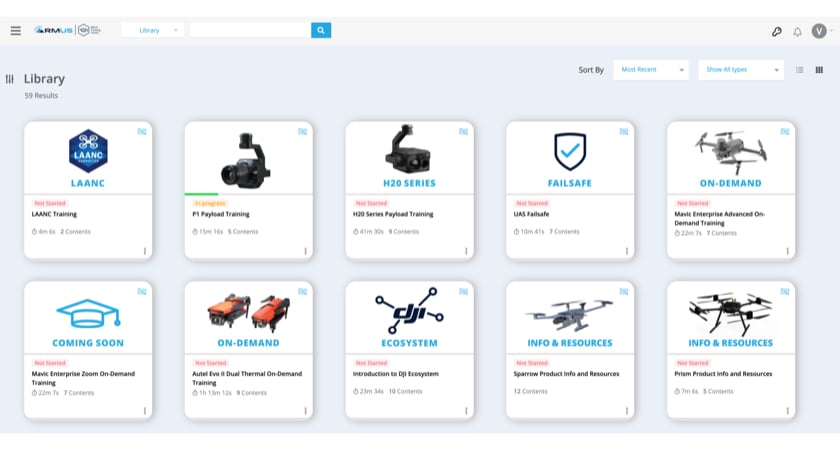
For operators, RMUS offers intensive hands-on proficiency training for those new to the commercial UAS industry, introducing them to drone operations, regulations, and equipment. The RMUS UAS Foundations Training sets up new pilots with basic flight skills and is included in most RMUS hardware-specific training. The comprehensive training is comprised of four courses plus three additional courses from the RMUS Intro to UAS Operations Package.
- Introduction to UAS Flight Controls
- Introduction to Camera Settings
- Introduction to Aerial Mapping
- UAS Failsafes
- Introduction to Commercial UAS
- Introduction to Part 107 Concepts
- Introduction to Drone Crew Responsibilities
With a solid base in place, detailed aircraft operation training can begin.
Set up, payloads, and operation of the DJI Matrice 300 RTK and DJI Mavic 2 Enterprise
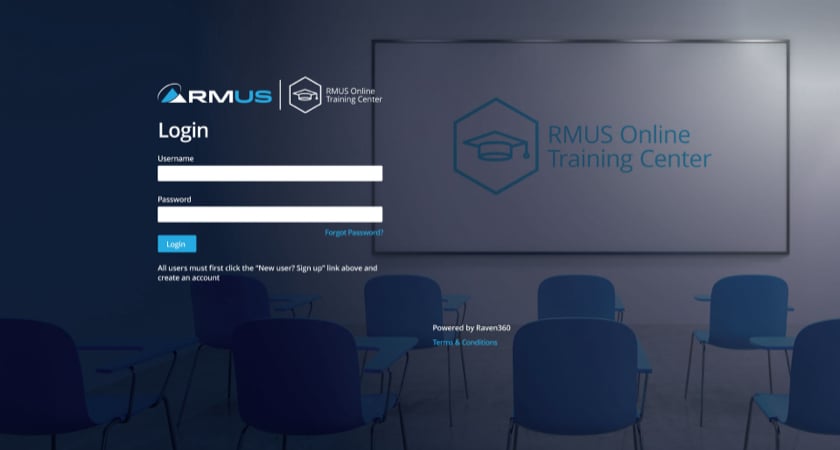
The RMUS DJI M300 On-Demand Training provides an overview of aircraft activation, firmware updates, the H20T/H20 payloads, the DJI Pilot app for the M300, battery care, basic operation, and RTK base station setup. The course is broken down into a number of easy-to-follow videos with knowledge retention tests after each section.Similarly, the DJI Mavic 2 Enterprise On-Demand Training - Advanced, Zoom, Dual prepares you for operation of the DJI Mavic 2 Enterprise Series. The course is similar in structure to the M300 course but includes training on features that are specific to the Mavic 2 Enterprise series and payloads.
RMUS has also developed detailed trainings for the following DJI Enterprise payloads:
- RMUS DJI L1 Training (coming soon)
- RMUS DJI P1 Training
- RMUS DJI H20 Series Training
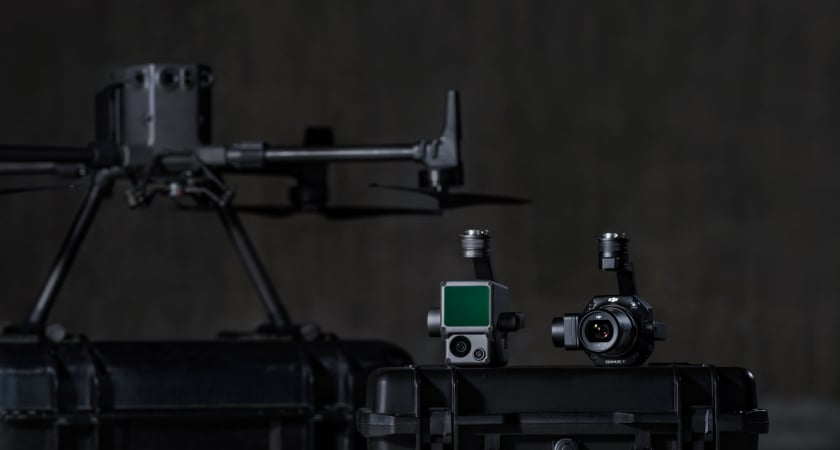 The Matrice 300 RTK, Zenmuse L1, and Zenmuse P1
The Matrice 300 RTK, Zenmuse L1, and Zenmuse P1
Students who complete RMUS UAS training can confidently operate their aircrafts.
“We have a list of learning objectives we take students through, and we work with them until they are comfortable with each skill before I approve them,” says RMUS Chief Training Pilot Chad Walker.
Recounting a recent Mavic Government Edition in-person training he did in Seattle, Chad explains: “I try to keep the classroom portion to two or three hours and then we go out in the field for hands-on experience. We just get students flying and comfortable with the drone, and by the second or third day they're well versed in it.” So versed, they were showing their teammates the cool features they discovered on their own.
There’s no substitute for ‘Stick Time’
Whether the training is live online or in-person, the on-demand online foundations and introduction to DJI ecosystem segments allow pilots to familiarize themselves with the screens and functions before they attend the live online or in-person training. This ensures they maximize flight time before batteries are swapped and they build as much muscle memory as possible in each flight hour.
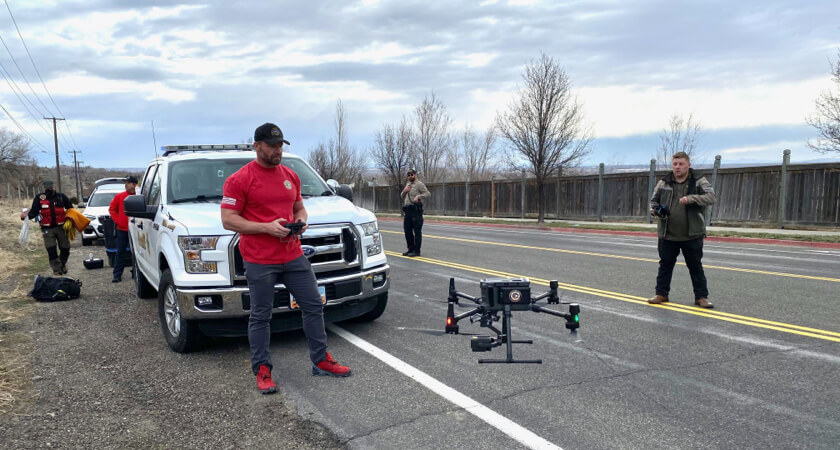
The granularity that can be achieved in either the live online or in-person training is also invaluable for students. As Weber County’s Kyle points out, the additional unexpected benefit he and the team received from the RMUS M300 in-person training is the fine details and explanation of the different aspects of the Zenmuse H20T camera.
“There's knowing what it can and cannot do, and then there’s how you can use it in the field.” That’s where the training makes a difference. “We delved into how to use these tools in the field, in addition to knowing and understanding the technical specifications,” Kyle says.
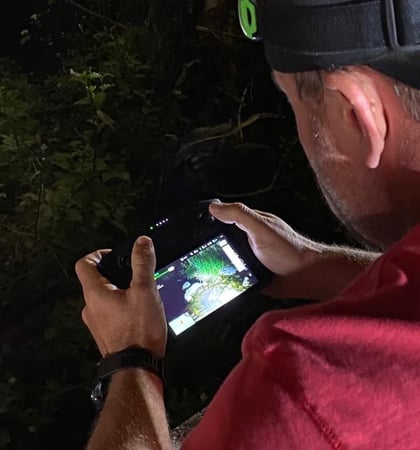
While the training is optional, RMUS approaches it as an extension of its service to customers. The training team looks to guide you through the learning process as well as share insights and best practices for setting up UAS programs and managing fleets. Visit RMUS.com/education to take your UAS program and career to new heights.





